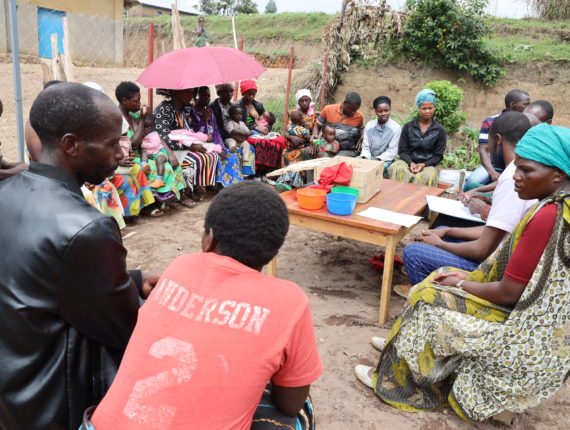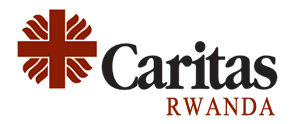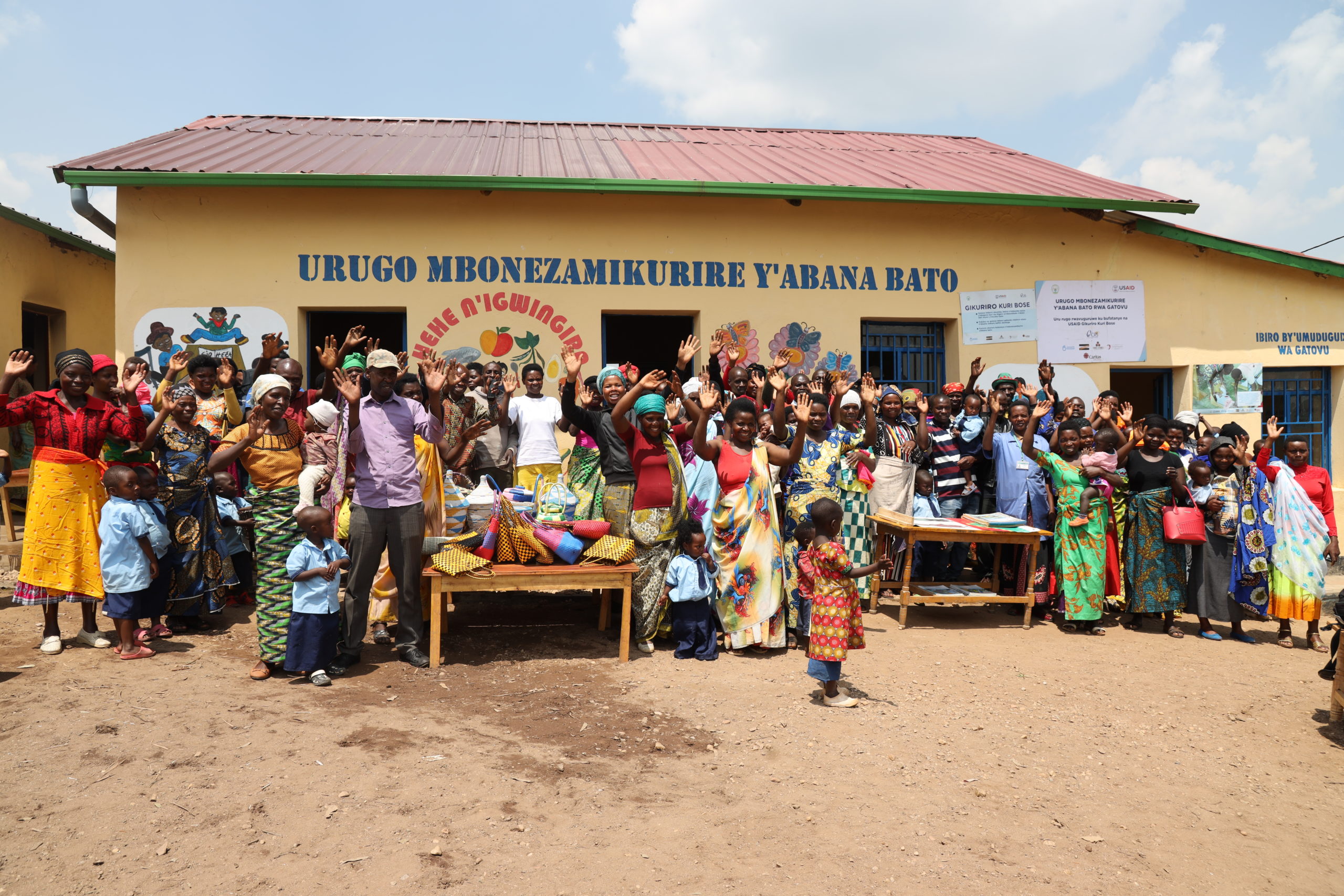Parents whose children are cared for in Nurturing Care Hubs (NCH) supported by the Gikuriro Kuri Bose (GKB) program assure that even if the program’s funding were to cease, the NCHs would still be able to function thanks to the parents’ commitment to support these NCH after experiencing the moral and intellectual growth of their children. They made these remarks when CRS (national and regional) and Caritas Rwanda’s communications staff visited the districts of Burera, Nyabihu, and Rulindo from February 20 to 22, 2024.
Gikuriro Kuri Bose aims to improve the health, functioning, nutritional status, and wellbeing of women of reproductive age and children under five years of age, with an emphasis on the 1,000-day window, strengthen inclusion of children and adults with disabilitiesand improve positive parenting and child development.
IGKB supports 55 Nurturing Care Hubs in Burera (22), Nyabihu (10) and Rulindo (23) districts. The program builds the premises (each NCH having a village chief’s office), provides toys for the children, school and kitchen equipment, trains caregivers and provides a part of the porridge flour (the rest come from the parents), and kitchen utensils. The program also enrols parents in savings and internal Lending Community groups. provides training in crafting skills, and offers a cash grant of Rwf 30,000 to purchase materials needed to produce craft products for sale. GKB also offers ongoing advice, monitoring, and evaluation of the NCHs to ensure their success.
The three NCHs that were visited are located in the villages of Gatovu (Burera district), Pfundo (Nyabihu district) and Gaseke (in Rulindo).
Parents in these communities have expressed gratitude for the introduction of NCHs by GKB. Before the establishment of these centres, children under seven were often left at home while their parents worked on the farm or engaged in other income-generating activities. This left the children vulnerable to accidents and illnesses.
Betty Uwitonze is one of the parents raising their children in the NCH from Gatovu village, Bugari cell, Rwerere sector in the Burera district. As she says, after his son of 3 years and 6 months started going to NCH, he became surprisingly sharp and intelligent. “He knows all the vowels and consonants, he knows how to count in English one, two, three, four up to ten. So I am happy that when he goes to primary school he will not be lost”, she said excitedly.

After experiencing these numerous benefits, parents are confident that the NCHs will continue to operate effectively. They are dedicated to keeping these NCHs operating smoothly on a regular basis, even if support from the Gikuriro Kuri Bose were to cease. Parents actively assist caregivers by taking turns preparing meals for the children and ensuring that there is enough flour for the children’s porridge. Additionally, the internal savings and lending groups help parents generate income to purchase small livestock to provide their families with protein or the ingredients they need for a balanced diet. In these groups, they make various handicrafts and sell them, thereby earning additional income.

Inclusive Nutrition and Early Childhood program (Gikuriro Kuri Bose) is a 5-year USAID funded project (2021-2026) and implemented by Caritas Rwanda in partnership with CRS Rwanda (overall coordination of implementation).
Gikuriro Kuri Bose is carried out in 10 districts, with Caritas Rwanda specifically implementing the program in only 3 districts: Rulindo, Burera and Nyabihu. Except Caritas Rwanda, there are other implementers in the remaining districts: AEE (Rwamagana, Kicukiro and Nyarugenge); YWCA (Ngoma and Kayonza) and DUHAMIC ADRI (Nyamasheke and Nyanza).


